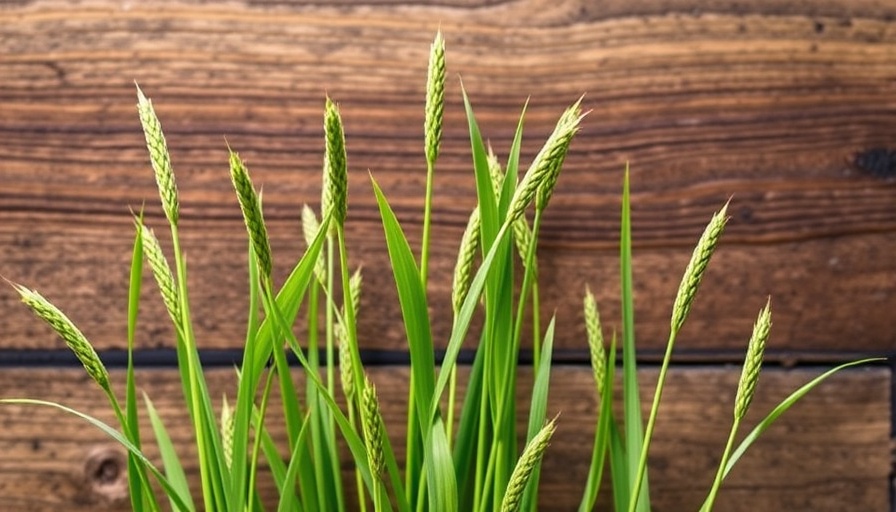
Barley Grass: A Natural Ally Against Depression?
The search for effective natural remedies to combat depression has led researchers to explore barley grass, a superfood rich in antioxidants and nutrients. Recent studies performed on lab mice have shown promising results, indicating that barley grass may offer antidepressant effects and represent a potential alternative to traditional pharmaceuticals.
Understanding Depression: A Growing Concern
Depression affects millions around the world and is often linked to stress, oxidative damage, and imbalances in brain chemistry. The pharmaceutical approach to treating depression can have numerous side effects, including worsening mental health for some individuals. This has led people to seek natural remedies, with barley grass emerging as a contender due to its rich nutritional profile. Barley grass is packed with vitamins, minerals, and antioxidants like flavonoids, which may play a significant role in supporting mental health.
Promising Findings from Animal Studies
Several intriguing studies highlight the potential mood-boosting properties of barley grass. One notable research work published in the Journal of Ayurveda and Integrative Medicine explored the effects of barley and wheat grass extracts on Swiss albino mice suffering from stress-induced depression. Researchers differentiated between a control group and those administered the extracts, examining behavioral changes that could indicate reduced depression.
The Science Behind Barley Grass and Stress
In this study, mice treated with barley grass and wheat grass extracts demonstrated a marked decrease in immobility—a proxy for despair—during forced swim tests and tail suspension tests. Those that received the extracts not only showed reduced anxiety but also remained more active in elevated plus maze tests than the control group. This suggests that barley grass might possess authentic antidepressant properties driven by its antioxidant components.
Linking Nutritional Science with Mental Health
The ingredients in barley grass, such as alkaloids, flavonoids, phenols, and tannins, translate into bioactive compounds that exhibit strong antioxidant activities. While these results from animal studies are not directly applicable to humans, they provide valuable insight into how barley grass might influence mood and well-being in individuals who consume it on a regular basis.
The Bigger Picture: Barley Grass in Daily Diet
Barley grass is typically consumed as a juice powder, added to smoothies, or taken whole in powdered form. As health awareness grows, more people are integrating superfoods like barley grass into their diets, not just for detoxification or inflammation but also to potentially enhance mood and mental clarity. However, it is essential for individuals to remember that these foods should complement, rather than replace, professional medical care.
Future Directions: What Lies Ahead?
As the connection between nutrition and mental health gains traction, further research is crucial to understand how barley grass might be utilized in therapeutic contexts. Human trials are needed to confirm the efficacy of barley grass as an antidepressant, but the findings from animal studies are a step in the right direction, possibly opening doors for greater public interest and investment into natural mental health remedies.
Final Thoughts: The Potential of Barley Grass
With the increasing dissatisfaction with traditional depression therapies, natural alternatives like barley grass present exciting possibilities. As researchers delve deeper into the benefits of nutrition on mental health, it may pave the way for holistic approaches that prioritize overall wellness. As women consider integrating new strategies for mental well-being, barley grass stands out as a functional food that may offer assistance.
For more information about incorporating barley grass into your diet and understanding natural remedies for better mental health, explore additional resources or consider seeking professional dietary advice.
 Add Row
Add Row  Add
Add 




Write A Comment